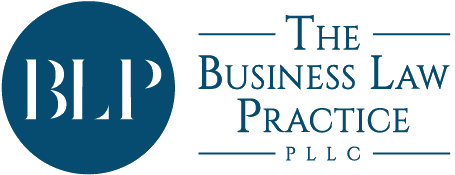Specialized legal representation
in business, commercial
and
transactional matters
More than 27 years' experience.
Call to discuss your business needs.
Business Transactions Attorney - Weston, Florida
Starting a Business
Starting a business from scratch is time very time consuming and challenging. Writing a business plan, coming up with a budget and projections, looking for space to operate from and hiring employees are just a few of the less pleasant things a prospective business owner must do to determine if the business can succeed, financially and operationally.
Buying a Pre-Existing Business
Buying a pre-existing business is an alternative to starting a business and growing it from the ground up. Pre-existing businesses have (or should have) business plans, a business location and employees. The concepts behind pre-existing businesses have already been tested by the market and consumers. Buying a pre-existing business can therefore alleviate much of the time consuming guess work and risk involved in starting a new, untested business.
Types of Business Transactions
There are generally two ways a company can be purchased. The easiest way is for the buyer to purchase the ownership interests (stock, membership interests, etc.) of the company from its current owners. These equity (or stock) deals don’t require the assignment and/or assumption of any specific assets of the company being sold and all of the employees continue to be employed by the selling company. Buyers in equity deals can simply identify “change of control” assignment language in the selling company’s agreements which will be triggered by this kind of deal and obtain the requisite consent.
While an equity or stock deal is typically easier to document and close, the buyer cannot separate or isolate itself from the seller’s liabilities in this type of transaction. For this reason, the second way to purchase a business or company is arguably more prevalent. Instead of buying the equity interests of the target from the current owners, a buyer can pick and choose what seller assets the buyer wants to purchase and what liabilities of the seller the buyer agrees to assume. In this type of “asset purchase” the buyer is often a newly formed company that has no operating history and therefore no liabilities. The buyer does not inherit the seller’s liabilities like the buyer does in an equity deal. Asset deals by their nature however are much more complex transactions. Various rights and assets have to be assigned separately and the buyer may not be able to convince all of the seller’s employees to stay and work for the buyer.
The risks associated with either type of transaction usually result in a portion of the purchase price being withheld at closing (by way of a promissory note or escrow) so that the buyer can set-off any seller liabilities it incurs against the unpaid portion of the purchase price (reduce the amount being paid to the seller). All sellers should protect their ability to receive the full purchase price by requiring any portion of the purchase price not paid at closing to be evidenced by a promissory note and collateralized by the assets being sold with the appropriate UCC filings.
All of the transactions described above start with either a confidentiality agreement (a seller document) or a letter of intent (a buyer document) and neither should be drafted or signed without the advice of a Florida Business attorney.
One common method of buying a business is through an equity deal, where the buyer purchases ownership interests (such as stock or membership interests) from the current owners. This type of transaction often involves fewer complexities, as it does not require the assignment of specific assets or employee contracts. However, the buyer assumes the seller's existing liabilities, which can be a risk.
Alternatively, a buyer can opt for an asset purchase, selecting specific assets and liabilities to assume. This method is generally more complex but allows the buyer to avoid inheriting the seller’s liabilities. Asset deals require detailed documentation and may involve negotiating with employees to transfer their employment to the buyer.
To mitigate risks, it is common practice to withhold a portion of the purchase price at closing, often secured by a promissory note or escrow. This allows the buyer to address any potential liabilities. Sellers should ensure their interests are protected by requiring a promissory note for any unpaid portion of the purchase price and securing it with appropriate UCC filings.
Whether you are considering buying a business or starting a new venture, the process begins with drafting and signing a confidentiality agreement (for sellers) or a letter of intent (for buyers). It is crucial to consult with a qualified Florida business attorney to ensure these documents are properly prepared and legally sound.
Call Us Today
For expert legal advice on business transactions and to discuss your specific needs, call us today.
